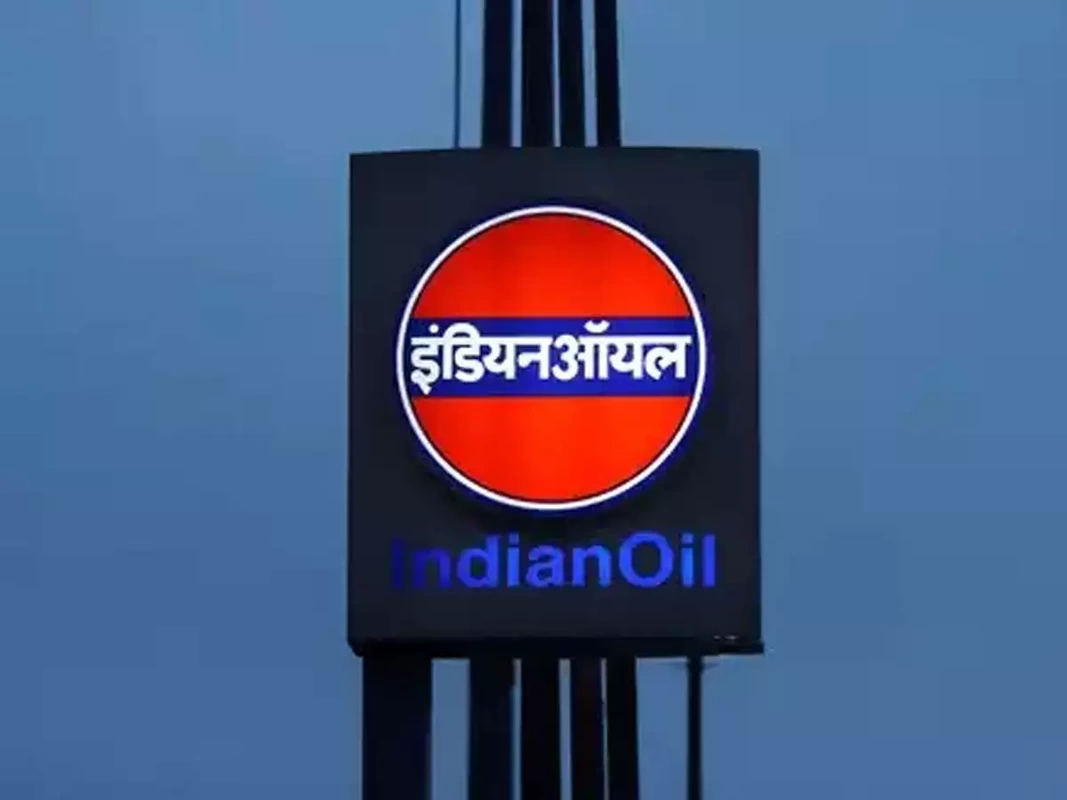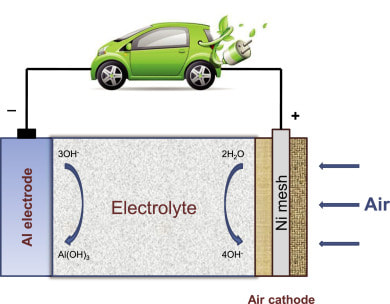IOCL (Indian Oil Corporation Limited) is going to finalize plans for a GigaWatt EV battery production plant for producing Aluminium-air batteries. IOCL plans to launch aluminium-air batteries for EVs in Andra Pradesh and Telangana. These batteries are a more cost effective alternative to lithium-ion batteries and are first-of-its-kind. Plant is estimated to cost 600 crores each.
|
IOC has a minority stake in Israel-based startup Phinergy that specialises in aluminium-air and zinc-air battery systems. It will soon finalise plans for a GigaWatt scale EV battery manufacturing plant jointly with an Israeli company. The battery made with aluminum, which is abundantly available in India, will have the capability to return about 400 km. Indian Oil is is talks with most of the OEMs on its battery plans.
SSV Ramakumar, Director (R&D), Indian Oil said it is gearing up for energy transitions and its petrol pumps will be able to offer not just petrol and diesel but methanol, ethanol, CNG, LNG, battery-swapping services and electric vehicle charging facilities. The reason why IOCL is evaluating the Al-air batteries is because of its lightweight and not having the necessity to electrically charge the batteries, unlike Lithium-ion variants. These batteries are one-fourth the weight of Lithium-ion batteries, and run more than double the lithium-ion batteries on a single charge. “The proven range in India of any variant of Lithium-ion battery is between 150-200 km/charge, but Aluminium-air batteries even on a modest expectation run more than 400 km/charge.” There is no mechanical electric charging or replacement required for Aluminium batteries. “It is just the replacement of Aluminium metallic plate gets converted to Aluminium Trihydroxide, from which the aluminium can be reclaimed. The Trihydroxide also has other industrial applications and is directly traded or sold in the market,” claims Ramakumar. |
|
PluginIndia's Take
Ethanol may not be a workable solution in India because we will face an ethical dilemma of feeding people vs vehicles. ALthough governments favour the ethanol approach as it may provide additional income to farmers, we should factor in the cost of resources used like water. Even fertiliser is mostly petroleum based - and once we run out of petroleum, fertiliser shortages may happen.
So the moot question is: Can Indian Oil kind of companies move from fuels to fuel cells? Oil companies world wide have favoured the fuel cell approach - because it requires a liquid. Not room temperature one. But the companies believe that they are experts in handling liquids and gases. And also in retailing them across highways. Our take is that hydrogen will dominate the trucking market in the years to come. So in that sense the companies have a hope. Whether they are able to find success in swapping and charging stations - am not too sure. Because in charging stations they are competing with parking lots. Electricity meters are easier to install than fuel tanks. And the cost of real estate matters. Prime real estate is not cost effective for what in a sense would be an EV warehousing operation. It might make more sense in swapping, as you only need to store batteries at your place, not vehicles. And you can go vertical in storage and make it more cost effective. For swapping to happen, what would help most is standardisation. And government policy. So what oil companies' real asset is going to be their government lobbying power. Instead of investing in R and D in the fundamental sense of the word, oil companies would be better off helping auto companies and governments set uniform standards for batteries. And work on safety in charging, swapping and storage
Ethanol may not be a workable solution in India because we will face an ethical dilemma of feeding people vs vehicles. ALthough governments favour the ethanol approach as it may provide additional income to farmers, we should factor in the cost of resources used like water. Even fertiliser is mostly petroleum based - and once we run out of petroleum, fertiliser shortages may happen.
So the moot question is: Can Indian Oil kind of companies move from fuels to fuel cells? Oil companies world wide have favoured the fuel cell approach - because it requires a liquid. Not room temperature one. But the companies believe that they are experts in handling liquids and gases. And also in retailing them across highways. Our take is that hydrogen will dominate the trucking market in the years to come. So in that sense the companies have a hope. Whether they are able to find success in swapping and charging stations - am not too sure. Because in charging stations they are competing with parking lots. Electricity meters are easier to install than fuel tanks. And the cost of real estate matters. Prime real estate is not cost effective for what in a sense would be an EV warehousing operation. It might make more sense in swapping, as you only need to store batteries at your place, not vehicles. And you can go vertical in storage and make it more cost effective. For swapping to happen, what would help most is standardisation. And government policy. So what oil companies' real asset is going to be their government lobbying power. Instead of investing in R and D in the fundamental sense of the word, oil companies would be better off helping auto companies and governments set uniform standards for batteries. And work on safety in charging, swapping and storage
Subscribe to PluginIndia on YouTube to follow the Indian EV Industry and EV Community. Also subscribe to our podcast.


